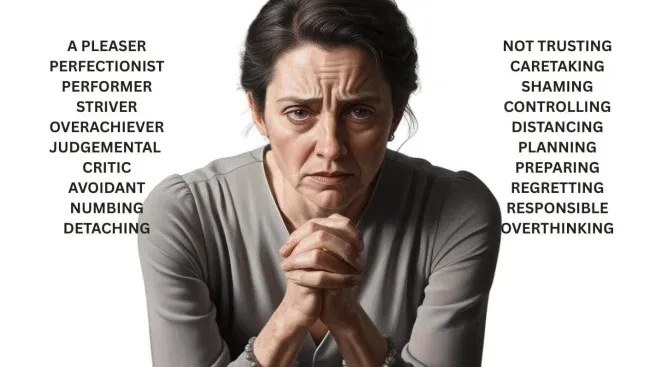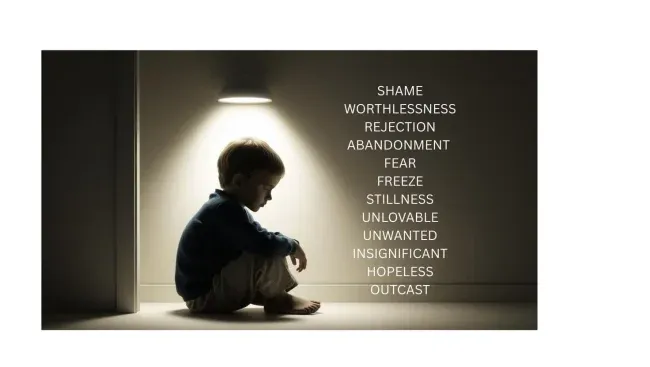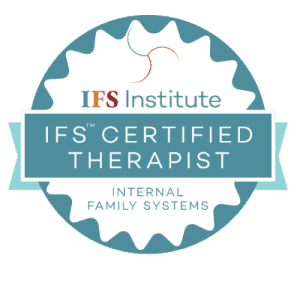Internal Family Systems Therapy
IFS Therapy in Dubai—At a Glance
- Approach: Internal Family Systems (IFS) therapy helps you understand and harmonize your inner parts—protector parts and exiles—to restore balance and Self-leadership.
- Therapist: Dr. Millia Begum, a UK-trained consultant psychiatrist and Certified Level 3 IFS therapist.
- Focus Areas: Trauma recovery, complex PTSD, grief, anxiety, and relationship patterns.
- Location: First Psychiatry Clinic, Villa 975, Al Wasl Road, Dubai (Umm Suqeim 2).
- Availability: In-person and online IFS sessions for expats and residents in Dubai and the UAE.
Table of Contents
- IFS Therapy in Dubai — At a Glance
- What is Internal Family Systems (IFS) Therapy?
- How IFS Therapy Works (Step-by-Step)
- What are the goals of IFS Therapy?
- Who is IFS therapy helpful for?
- IFS Therapy — Evidence at a Glance
- Real Questions People Ask About IFS Therapy
- Watch YouTube video on IFS therapy
- Book an IFS therapy session in Dubai
- Contact & Location

Testimonials
I’ve been doing IFS therapy with Dr. Milia for the past four months, and I’ve noticed real positive changes. She is incredibly compassionate, professional, and most importantly, truly HUMANE. It’s rare to find medical professionals in Dubai who genuinely care and are not just commercial.
Dr. Milia gives from the heart and always goes above and beyond, even when the session runs longer than an hour. She’s highly skilled in IFS, and I’ve experienced amazing breakthroughs that feel even more effective than CBT.
Dr Millia is absolutely wonderful, she takes her time and is highly experienced in both psychiatry and therapeutic modalities which contributes to her warm approach. I am grateful to have found her and feel in great care with her.
I’ve been seeing Dr Millia for several months now doing IFS and this changed my whole way of thinking. Dr Millia is kind, compassionate and my sessions with her have been life changing. Thank you for the amazing work you do Dr M, wouldn’t have made it through without you.
I had been searching for a psychologist in Dubai who specializes in Internal Family Systems (IFS) therapy, and I was incredibly fortunate and pleasantly surprised to come across Dr. Millia Begum.
From our very first session, Dr. Millia has exemplified professionalism. She creates a safe, understanding, and supportive environment that is crucial for the deep work involved in IFS.
Totally made me feel at ease. With such a warm disposition and professional manner, Dr Millia helped with a plan of care which was empathetic, practical and made me feel understood.
Dr Millia is a good listener, gentle in her approach, and asks the right question that allows me to discover and be aware of myself, my thoughts, and my body language.
I had a great experience meeting with Dr. Millia, she was very attentive to me, aside from that, I felt at ease and comfortable with her. She’s amazing.
Such a kind and soft spoken doctor. Makes you feel loved, welcomed, and heard. She’s very knowledgeable and helpful in her field.
Millia is exceptionally kind, caring and knowledgeable. She is so human and understanding, and can use her expertise in medicine and therapy to provide the most appropriate help. I am very grateful.
I see Dr Millia & I have no words other than she is one of a kind in this world her skills have no words & you will not find better in uae, I promise you.
I want to express my heartfelt appreciation for the care and support you have provided, your commitment to your patients is truly admirable,
What is Internal Family Systems (IFS) Therapy?
Internal Family Systems (IFS) is a collaborative, evidence-based, and non-pathologizing form of psychotherapy. It views the mind as an inner system of “parts,” each of which assumes protective roles in response to life experiences and emotional pain. These “parts” take on these roles out of necessity—often to survive and help us cope.
Through IFS Therapy, you learn to approach these “parts” with curiosity and compassion, understand their roles and burdens, and build a relationship with your core Self—the calm, confident, and compassionate center within you. From this place of Self-leadership, lasting healing and emotional balance can emerge.
How IFS Therapy Works (Step‑by‑Step)
How does an IFS session work?
The session begins with an initial assessment and gentle exploration of your inner system—the different “parts” of you that carry emotions, beliefs, or protective roles.
Relational trust, pacing, and boundaries are always respected. The general stages of the IFS process are:
- Mapping your system: We identify your inner protectors (such as managers and firefighters) and the exiles they safeguard.
- Safety & permission: We build trust with the protective parts by recognizing their positive intentions and ensuring they feel heard before approaching vulnerable emotions.
- Self‑leadership: You access your core Self- the calm, curiosity, and compassion center within you to guide the healing process.
- Unburdening: When protectors feel safe, we gently approach the exiled parts carrying pain, shame, and fear. These burdens are witnessed, understood, and released, allowing emotional relief and freedom.
- Integration: Parts adopt new, healthier roles, and you begin to live from Self-leadership. The insights gained in therapy naturally integrate into daily life and relationships.
Parts of the Inner System
Manager Parts
Manager Parts are protective parts that work hard to prevent, control, or manage emotional pain. Their main goal is to keep the system safe by maintaining order and avoiding vulnerability. Without these roles, protector parts fear painful outcomes, such as rejection, feeling unworthy, or feeling unloved.
Managers learn their roles early in life—often in environments where control and self-reliance were necessary to cope with unpredictability, harshness, loneliness, or abandonment. By staying vigilant, managers protect the system from emotional chaos, ensuring stability and a sense of safety.
Managers often bring an internal sense of control in situations that once felt unsafe or overwhelming. Their motto is “Never again will we feel that pain or be caught off guard.”
When approached with compassion and curiosity, these parts relax and transform, revealing their true intention: to keep you safe and ensure you feel in control.

The Manager Protector
Firefighter Parts
Firefighter parts are the pain relief and crisis-rescuer parts of the system. They leap into action the moment emotional pain, shame, or fear feels too overwhelming to bear. Their mission is simple but urgent: to stop the pain at any cost.
When triggered, firefighters use soothing or distracting strategies to diffuse emotional distress. Their strategies may involve overeating, overworking, substance misuse, scrolling, and compulsive behaviors. Rage, self-harm, and violence are also examples of firefighter parts. These parts are often feared for the consequences and impact they bring to oneself and others. The motto of these parts is “This is too much—I have to escape it all or end it all.”
When met with compassion and understanding, firefighters get calmer and less rushed and urgent. They learn that the Self can hold the pain safely and gently.

The Firefighter Protector
The Exiles
Exiled parts represent the wounded inner child—the parts that carry deep pain, shame, or feelings of unworthiness. These parts often hold memories of being a burden, too much, not enough, or unseen.
When a child’s authentic Self feels unwelcome, unsafe, or unseen, those tender emotions become exiled to protect the system from overwhelm.
For instance, a sensitive or expressive child or a child who struggles academically may learn to hide their needs and silence their truth.
To stay loved and accepted, the exile withdraws, and the system develops protective strategies to keep the pain locked away. The exiled part lives with the pain that “No one ever saw my pain.”
Many neurodivergent (ADHD and autistic) clients carry exile burdens of invisibility, rejection, or constant self-correction, often shaped by cultural and familial expectations.
When these parts are met with genuine compassion and safety in IFS therapy, they no longer need to stay hidden. As the Self witnesses and validates their pain, healing unfolds—and the exiled child’s vitality, creativity, and tenderness begin to return.

The Exiled Part
What are the goals of IFS Therapy?
The primary goal is Self-leadership—allowing your core Self (calm, compassionate, curious, confident, etc.) to lead your inner system. From this Self-led state, each part of you can feel safe, understood, and valued.
IFS Therapy helps you to:
- Build respectful relationships with protector parts (managers and firefighters) so they feel safe to relax.
- Unblend from reactive parts so Self qualities can guide your responses rather than fear or defense.
- Approach and heal the exiles—only with the permission of the protectors, witnessing their pain and gently releasing burdens when ready.
- Help protectors adopt new and healthier roles that are more sustainable and supportive of the whole system.
In practice, you learn to notice parts without fear or judgment. Learn to respond from a place of curiosity rather than panic or pain. Healing with IFS is not about eliminating parts—it’s about restoring inner harmony and transforming your relationship with yourself through compassion and clarity.

Who benefits from IFS therapy?
IFS therapy is a powerful and compassionate approach for a wide range of emotional and psychological challenges.
Whether you’re struggling with anxiety, depression, PTSD, Complex PTSD, burnout, or grief—IFS helps address the root causes of distress, not just surface symptoms.
IFS therapy is effective for childhood trauma, attachment wounds, and inner conflict, where parts of you may still carry pain, fear, or shame from earlier experiences.
IFS therapy can support you if you are facing:
- Anxiety disorders (including panic)
- Depression and low mood
- PTSD and Complex PTSD
- Grief and loss
- Disordered eating & body image concerns
- Substance use / compulsive behaviors
- Self-harm and emotional dysregulation
- Parenting and relationship difficulties
- Neurodivergence (e.g., ADHD, Autism) supporting trauma accrued from delays in diagnosis—learn about ADHD testing
- Burnout and stress
IFS also supports individuals navigating perfectionism, inner criticism, or the feeling of being stuck.
IFS Therapy—Evidence at a Glance
Research so far suggests that IFS therapy may help with trauma symptoms, emotional regulation, self-compassion, and inner harmony. While large-scale studies are still needed, current findings are promising—especially for conditions involving chronic stress, complex trauma, and emotional dysregulation.
Emerging research highlights are
• In PTSD, a 16-session IFS pilot trial showed significant reductions in PTSD, depression, dissociation, and emotional dysregulation.
• In one study for depression (IFS vs. usual care), improvements were seen in both groups. Another study on rheumatoid arthritis found that IFS outperformed education in reducing pain, enhancing function, increasing self-compassion, and lowering depression—with some benefits persisting for up to 1 year.
Key studies—
- Hodgdon et al. (2022): 16 IFS sessions → ↓ PTSD, depression, dissociation, and emotion dysregulation (post & follow-up) View Study
- Shadick et al. (2013): IFS in rheumatoid arthritis → ↓ pain, ↑ function & self-compassion, ↓ depression; some effects lasted a year Full Text
- Comeau et al. (2024): Group + individual IFS for PTSD → ↓ PTSD, ↑ self-compassion; 92% would recommend Read Abstract
Want to Learn More? Wikipedia: Internal Family Systems Model
Real Questions People Ask About IFS Therapy
Is IFS therapy available in Dubai?
Dr Millia is a Certified IFS Therapist in Dubai. She offers both in- person and online IFS therapy sessions. She offers this to both Dubai and other UAE regions.
Is IFS suitable for complex PTSD?
Many clients with complex trauma prefer IFS because it respects protectors and avoids overwhelm. Internal Family Systems is a safe way to work with protectors that needs sense of internal trust before moving to the source of the pain.
How many sessions will I need?
The number of sessions are not determined or pre-determined by the therapist as the complexity of the protective parts that are not fully understood before initiating the sessions. The number and the pace is determined by the fears of the protectors that have set up ways to avoid overwhelm.
Is IFS therapy safe?
Yes. IFS therapy is one of the safest ways to work with inner systems that carry emotional wounding. However, any therapy that truly works, will bring some discomfort. Parts that are afraid of overwhelm are the first to be helped as part of the overall trust building process.
Watch YouTube video on IFS therapy
Book an IFS therapy session in Dubai
Dr. Millia Begum is a trained trauma specialist with over 25 years of clinical experience in psychiatry and therapy. She trained in the UK’s NHS system and served the NHS in various senior roles.
She is a former EMDR Europe Approved Consultant, EMDR researcher, and board member of the EMDR Association UK. She is now a member of the EMDR International Association (EMDRIA).
Dr. Millia is a Certified Internal Family Systems (IFS) Therapist, bringing a compassionate, parts-informed approach to her work with clients in Dubai.


Book an IFS Therapy session in Dubai- Contact Dr. Millia
If you would like to book a consultation or learn more about services, please get in touch:
- Clinic: First Psychiatry Clinic
- Address: 975 Al Wasl Road, Dubai, UAE
- Phone: +971 55 355 7855
- Email: info@milliabegum.ae
- Website: milliabegum.ae
📍 Location & Opening Hours
Opening hours
- Monday: 09:00 – 18:00
- Tuesday: 09:00–18:00
- Wednesday: 09:00–18:00
- Thursday: 09:00–18:00
- Friday: 09:00–18:00
- Saturday: 09:00–18:00
- Sunday: 09:00–18:00